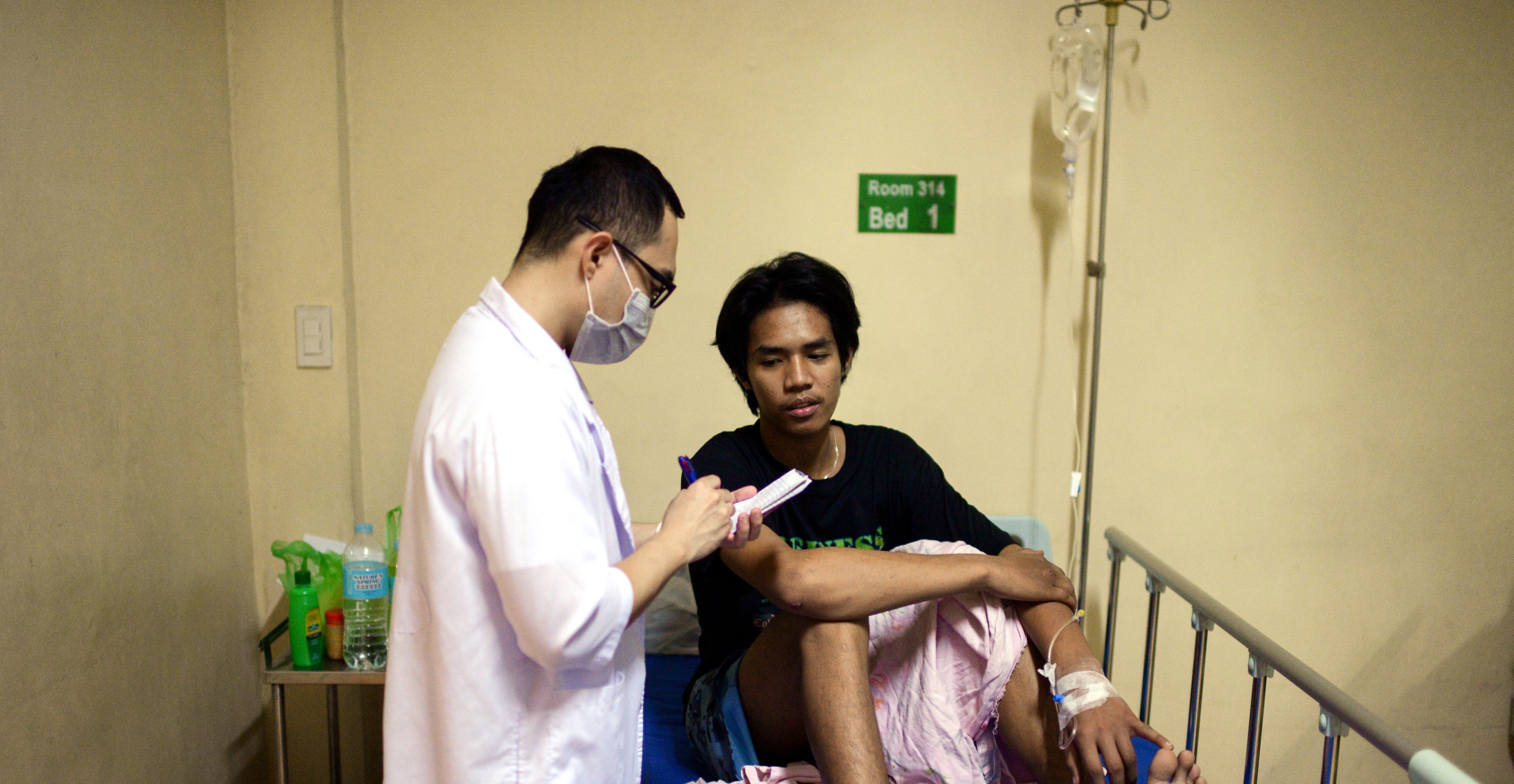A universal flu vaccine: Here's what you need to know

Existing flu vaccines are based on recently circulating strains. Image: REUTERS/Kim Hong-Ji
Listen to the article
- Researchers in the US have made progress on a 'universal' influenza vaccine.
- Current flu vaccines are 'seasonal', meaning they only offer protection against recently circulating strains.
- The researchers hope a universal vaccine could help reduce death and severe illness during any future flu pandemics.
- The development and distribution of vaccines involves partners across the globe.
Scientists in November announced a breakthrough in work towards developing a 'universal' flu vaccine. Using the same messenger ribonucleic acid (mRNA) technology that's been used in several COVID-19 vaccines, researchers at the University of Pennsylvania were able to develop a vaccine against all the 20 known influenza A and B virus subtypes.
In initial tests, the experimental vaccine provided broad protection against strains that could otherwise be lethal. The researchers behind the work say it could one day help as a general preventative measure against future flu pandemics.
"The idea here is to have a vaccine that will give people a baseline level of immune memory to diverse flu strains, so that there will be far less disease and death when the next flu pandemic occurs," Dr Scott Hensley, the senior author of the study, and a professor of microbiology at the Perelman School of Medicine, told Penn Medicine News.
What is the World Economic Forum doing about access to vaccines?
Why a universal flu vaccine matters
Advances in medicine, as well as sanitation and indeed existing vaccination programmes, have helped reduce the number of people who die from flu, but it still remains a major global killer. Hundreds of thousands of people die from seasonal influenza every year, explains Our World in Data.
The risk of death increases significantly with age, while infants are also more at risk.
But of particular concern to the researchers behind this mRNA flu vaccine is reducing the impact of pandemic strains of influenza. Perhaps the best-known flu pandemic was the so-called 'Spanish flu' pandemic from 1918-1920, but as the following chart from Our World in Data shows, it's been far from the only one.
But, current flu vaccines are 'seasonal', meaning they only offer protection against recently circulating strains and don't offer protection against any new strains that would cause a pandemic.
How does the new vaccine work?
The University of Pennsylvania researchers behind the vaccine used immunogens, a type of antigen that stimulates responses from the immune system, from all the known influenza subtypes.
It's not expected to provide so-called sterilizing immunity, which completely prevents infection, but rather enables the body to build its immune system's memory, allowing it to recall what it knows and adapt quickly to new pandemic strains.
The key to making the new vaccine successful thus far has been the mRNA technology.
“For a conventional vaccine, immunizing against all these subtypes would be a major challenge, but with mRNA technology, it’s relatively easy,” Hensley said.
The vaccine development is still in its early stages though, so it remains to be seen when we might all be getting our universal vaccine.
Getting everyone access to vaccines
The work of researchers like those at Penn, but also organizations like CEPI, is vital in developing vaccines, like a universal flu jab or the COVID-19 vaccines, and then ensuring their equitable distribution.
CEPI - the Coalition for Epidemic Preparedness Innovations - is a global partnership between multiple sectors to accelerate the development of vaccines and other measures to tackle epidemic and pandemic threats. It was launched at Davos in 2017 and works across the process from discovery and development to delivery and last-mile support.
And like CEPI, Gavi, the Vaccine Alliance was also launched at Davos - this time in 2000. It has gone on to immunize millions of children - some 888 million from 2000 to 2020, in fact, preventing millions of potential deaths, building on the work of researchers like those at Penn, and then getting vaccines into those who need it.
Don't miss any update on this topic
Create a free account and access your personalized content collection with our latest publications and analyses.
License and Republishing
World Economic Forum articles may be republished in accordance with the Creative Commons Attribution-NonCommercial-NoDerivatives 4.0 International Public License, and in accordance with our Terms of Use.
The views expressed in this article are those of the author alone and not the World Economic Forum.
Stay up to date:
Global Health
Forum Stories newsletter
Bringing you weekly curated insights and analysis on the global issues that matter.
More on Health and Healthcare SystemsSee all
Judith Love
November 18, 2025









